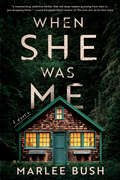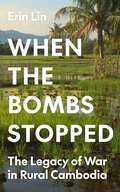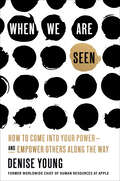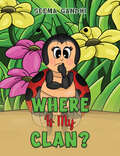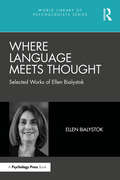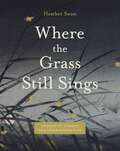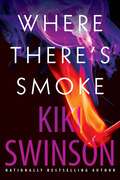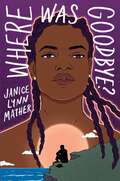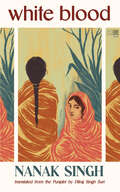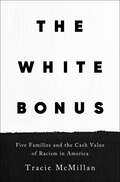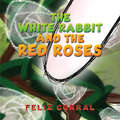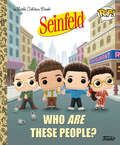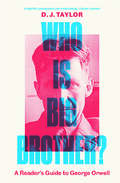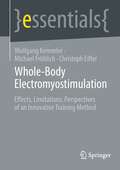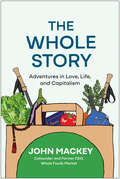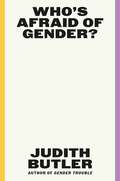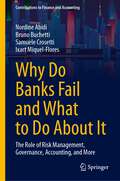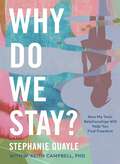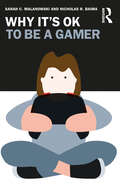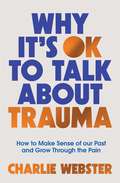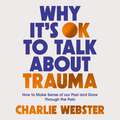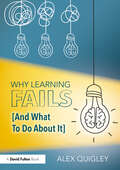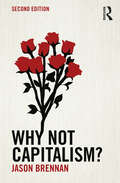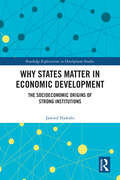- Table View
- List View
When She Was Me: A Novel
by Marlee Bush"A nail-biting story of sisterhood, suspicion, and suspense. When She Was Me weaves together past and present seamlessly to create a twist you won't see coming." — Tracy Sierra, author of NightwatchingThere's only one way out of these woods…Ever since that night, twin sisters Cassie and Lenora have been inseparable. As the sole permanent residents of Cabin Two, their refuge on an isolated Tennessee campground, they manage to stay away from prying eyes, probing questions, and true crime junkies. Just the two of them, Cassie and Lenora against the world. The peace and quiet is almost enough to make them forget what happened all those years ago. Almost. Until a teenage girl camping at the neighboring cabin goes missing, and the memories come rushing back. As the crime becomes ever more recognizable—they know better than anyone that so-called 'happy families' can be anything but—each sister suspects the other knows more than she's letting on….Trapped in the isolating, claustrophobic wilderness, Cassie and Lenora must piece together the truth of what happened—and the sinister truth lurking in their own pasts—before it's too late.A taut, captivating read perfect for fans of Sally Hepworth and Kate Alice Marshall, When She Was Me is a story of sisterhood, obsession, and the ways secrets stalk us like shadows."When She Was Me is eerie, captivating, and full of twists." — Darcy Coates, USA Today bestselling author of Dead of Winter
When the Bombs Stopped: The Legacy of War in Rural Cambodia (Princeton Studies in International History and Politics #206)
by Erin LinHow undetonated bombs from a war that ended more than fifty years ago still affect Cambodian farmers and their land Over the course of the Vietnam War, the United States dropped 500,000 tons of bombs over Cambodia—more than the combined weight of every man, woman, and child in the country. What began as a secret CIA infiltration of Laos eventually expanded into Cambodia and escalated into a nine-year war over the Ho Chi Minh trail fought primarily with bombs. Fifty years after the last sortie, residents of rural Cambodia are still coping with the unexploded ordnance that covers their land. In When the Bombs Stopped, Erin Lin investigates the consequences of the US bombing campaign across postconflict Cambodia.Drawing on interviews, original econometric analysis, and extensive fieldwork, Lin upends the usual scholarly perspective on the war and its aftermath, presenting the viewpoint of those who suffered the bombing rather than those who dropped the bombs. She shows that Cambodian farmers stay at a subsistence level because much of their land is too dangerous to cultivate—and yet, paradoxically, the same bombs that endanger and impoverish farming communities also protect them, deterring predatory elites from grabbing and commodifying their land. Lin argues that the half-century legacy of American bombs has sedimented the war into the layers of contemporary Cambodian society. Policies aimed at developing or modernizing Cambodia, whether economic liberalization or authoritarian consolidation, must be realized in an environment haunted by the violence of the past. As the stories Lin captures show, the bombing served as a critical juncture in these farming villages, marking the place in time where development stopped.
When We Are Seen: How to Come Into Your Power--and Empower Others Along the Way
by Denise YoungFrom one of the first and few women of color to reach the C-suite in Silicon Valley, Apple&’s former chief of HR and first VP of inclusion and diversity, comes a heartfelt story of growing up Black and female in a world with little regard for either and a practical road map for embodying the best in yourself and emboldening others along the way.&“You will enjoy reading this book and benefit as a business leader but mostly as a member of the human race.&”—Ron Johnson, business leader Apple, Target, JCPenneyFor her work as a co-creator of the Apple Store cultural experience, Denise Young has been deemed by leadership experts as one of the most emotionally intelligent leaders of her era. In this stirring narrative, part-memoir, part blueprint for action, she shares her vision of what it means to be truly seen at our places of work. As a &“first and only&” woman of color in boardrooms and leading roles across the Bay Area&’s booming tech industry, Denise was a trailblazer in a business that was never built for her. The first black and female senior executive under both Steve Jobs and Tim Cook, Denise was often in &“the room where it happened.&” But within a white male-centric professional culture, she still had to work harder, smarter, and differently to be heard.In When We Are Seen, Denise shares insights on using your own story, empathy, and intuition to unlock the potential in yourself and others. Her story serves as both solace and strategy for anyone who has ever felt left out, unseen, or ostracized; anyone interested in upending cycles of exclusion; and for those interested in reclaiming our agency in the ongoing quest to thrive and belong.Denise argues that bringing your truest self to work—from wearing your beloved locs to sharing your artistic passion—and, in turn, holistically seeing the attributes others have to offer is not a passive experience; it is a specific skill we can and should build. And the result is a deeper understanding of what it means to be inclusive and powerfully human on the job.
Where Is My Clan?
by Seema GandhiWhere Is My Clan? is a novel about a little ladybug wandering in search of her family. She comes across many animals in her search for her own clan. Carefully, the little ladybug comes across various collective names for each of these animals, and finally makes her way through and reunites with her family.
Where Language Meets Thought: Selected Works of Ellen Bialystok (World Library of Psychologists)
by Ellen BialystokIn the World Library of Psychologists series, international experts present career-long collections of what they judge to be their most interesting publications – extracts from books, key articles, research findings, and practical and theoretical contributions.Ellen Bialystok has published widely in the field of cognitive development and decline across the lifespan. Her research uses behavioral and neuroimaging methods to examine the effect of experience on cognitive and brain systems with a focus on bilingualism. Her discoveries include the identification of differences in the development of cognitive and language abilities for monolingual and bilingual children, the use of different brain networks by monolingual and bilingual young adults performing cognitive tasks, and the postponement of symptoms of dementia in bilingual older adults. In other studies, she has investigated the effects of bilingual education on children’s development and the cognitive and brain consequences of bilingualism in older adults.Including a specially written introduction, in which Ellen Bialystok reflects on the role that language plays on thought, this collection will serve as a valuable resource for students and researchers of psycholinguistics, developmental psychology, and applied linguistics.
Where the Grass Still Sings: Stories of Insects and Interconnection (Animalibus)
by Heather SwanThrough narrative, verse, and art, Where the Grass Still Sings celebrates the many tiny creatures that play crucial roles in our ecosystems—as well as the people on the front lines of the fight to save them.Weaving art and science with inspiring stories of people doing their part to protect insects and the environment, author Heather Swan takes readers around the globe to highlight practical solutions to safeguard our fragile planet. Visit a sustainable coffee farm in Ecuador and a frog expert combating animal trafficking in Colombia. Explore a butterfly sanctuary in an Andean cloud forest and learn about a family of orchid farmers who are replanting a mountainside to attract native pollinators. Meet a bumblebee expert helping Wisconsin cranberry growers, a bark beetle specialist in a new-growth forest in Georgia, an entomologist collecting for the Essig Museum in California, and more. Against a backdrop of climate change, ecological injustice, and impending mass extinction, this book rekindles wonder and hope.Featuring works by artists deeply invested in preserving the smallest beings among us, Where the Grass Still Sings is a paean to the natural world.
Where There's Smoke (Alayna Curry #2)
by Kiki SwinsonIn her nationally-bestselling novels, Kiki Swinson ignites an unforgettable portrait of Dirty South scheming, greed, desire--and brutal dead ends. Now the stakes have never been more lethal as a compromised female firefighter starts burning down her all-too-corrupt past . . .Kill your secrets . . . Volunteer Virginia Beach firefighter Alayna Curry used to pride herself on saving lives. But now, determined to conceal her part in an arson-for-insurance scam gone bad, she's using her skills to have the scheme's leader, Tim—her ex-lover—shot dead, claiming it was a robbery. She's carefully set him up to be the ultimate fall guy. And she's ruthlessly aiming to silence more witnesses—which will also get her beloved brother Alonzo out of prison . . .Conceal your lies . . . . . . Until Alayna has to desperately defend herself against Tim's vengeful wife and his other grieving side piece's very public accusations, all while fighting to stay steps ahead of the fellow firefighters she betrayed—and the husband she's long past fallen out of love with . . .Watch your back . . . With a determined FBI agent and the police pulling apart her story—and her lies—bit by bit, Alayna recklessly plays her most dangerous trump card to free Alonzo and clear her name for good. But will one body too many be the catalyst that finally blows her chances of escape, and survival, to pieces?
Where Was Goodbye?
by Janice Lynn MatherA teen girl searches for closure after her brother dies by suicide in this breathtaking novel for &“fans of Erika L. Sánchez&’s I Am Not Your Perfect Mexican Daughter and Sarah Everett&’s How to Live without You&” (Booklist, starred review).Karmen is about to start her last year of high school, but it&’s only been six weeks since her brother, Julian, died by suicide. How is she supposed to focus on school when huge questions loom: Why is Julian gone? How could she have missed seeing his pain? Could she have helped him? When a blowup at school gets Karmen sent home for a few weeks, life gets more complicated: things between her parents are tenser than ever, her best friend&’s acting like a stranger, and her search to understand why Julian died keeps coming up empty. New friend Pru both baffles and comforts Karmen, and there might finally be something happening with her crush, Isaiah, but does she have time for either, or are they just more distractions? Will she ever understand Julian&’s struggle and tragedy? If not, can she love—and live—again?
White Blood
by Nanak SinghA lyrical, luminous offering from the pioneer of Punjabi novel writing and Sahitya Akademi‐awardee Nanak SinghWhen a ticket officer apprehends a ticketless traveller at the Amritsar Railway Station, he is shocked to discover that the penniless young man in tattered clothes is none other than the widely acclaimed writer Gupteshwar. But even more disconcerting than the state of the author is the story of his new novel, one that lays bare the moral rot besieging twentieth-century Punjab. As the author reads from his unfinished manuscript, it becomes clear that the tale of the two women he is weaving is far from fictional.With its nested narratives, rich prose and fascinating depiction of quotidian life, Nanak Singh's pivotal novel paints an unsparing portrait of a society infected with corruption, casteism and appalling inequality, where those who position themselves as guardians of morality are the ones most willing to abuse their power.
The White Bonus: Five Families and the Cash Value of Racism in America
by Tracie McMillanA genre-bending work of journalism and memoir by award-winning writer Tracie McMillan tallies the cash benefit—and cost—of racism in America.In The White Bonus, McMillan asks a provocative question about racism in America: When people of color are denied so much, what are white people given? And how much is it worth—not in amorphous privilege, but in dollars and cents?McMillan begins with three generations of her family, tracking their modest wealth to its roots: American policy that helped whites first. Simultaneously, she details the complexities of their advantage, exploring her mother’s death in a nursing home, at 44, on Medicaid; her family's implosion; and a small inheritance from a banker grandfather. In the process, McMillan puts a cash value to whiteness in her life and assesses its worth.McMillan then expands her investigation to four other white subjects of different generations across the U.S. Alternating between these subjects and her family, McMillan shows how, and to what degree, racial privilege begets material advantage across class, time, and place.For readers of Robin DiAngelo’s White Fragility and Heather McGhee’s The Sum of Us, McMillan brings groundbreaking insight on the white working class. And for readers of Tara Westover’s Educated and Kiese Laymon’s Heavy, McMillan reckons intimately with the connection between the abuse we endure at home and the abuse America allows in public.
The White Rabbit and the Red Roses
by Feliz CorralMeet a striking white rabbit with bright red eyes, shining like rubies. His eyes reflect the love he feels, but also reveal a whirlwind of emotions. He&’s overwhelmed, hopping around in a state of worry, fear, sadness, and anger, all mixed together. Struggling to find the right words or clear thoughts, the rabbit feels lost. In this challenging moment, the value of a true friend becomes apparent. This friend stays with him, helping him navigate through his overwhelming emotions, and guides him back to a sense of clarity and calm.
Who Are These People? (Little Golden Book)
by David CroattoLearning all about your neighbors has never been funnier as adorable Funko Pop! versions of Jerry, Elaine, George, Kramer, and other loveable oddball characters from Seinfeld ask the question, &“Who Are These People?&” in their first-ever Seinfeld Little Golden Book!From Seinfeld&’s mailman Newman to Yev the soup guy, learning about the wacky people in New York City has never been more fun with the adorable Funko Pop! versions of Jerry, Elaine, George, Kramer, and other characters from Seinfeld, the best TV sitcom of all time! Perfect for children 2 to 5, Funko collectors of all ages, and fans of the hit television series Seinfeld will love this new addition to the Little Golden Books line. Little Golden Books enjoy nearly 100% consumer recognition. They feature beloved classics, hot licenses, and new original stories. . . the classics of tomorrow.
Who Is Big Brother?: A Reader's Guide to George Orwell
by D. J. TaylorA spirited and essential companion to Orwell and his works, covering all the novels and major essays An intellectual who hated intellectuals, a socialist who didn&’t trust the state—our foremost political essayist and author of Animal Farm and Nineteen Eighty-Four was a man of stark, puzzling contradictions. Knowing Orwell&’s life and reading Orwell&’s works produces just as many questions as it answers. Celebrated Orwell biographer D. J. Taylor guides fans and new readers alike through the many twists and turns of Orwell&’s books, life and thought. As a writer he intended his works to be transparent and instantly accessible, yet they are also full of secrets and surprises, tantalising private histories, and psychological quirks. From his conflicted relationship with religion to his competing anti-imperialism and fascination with empire, Who Is Big Brother? delves into the complex development of this essential yet enigmatic voice. Taylor leads us through Orwell&’s principal writings and complex life—crafting an illuminating guide to one of the most enduringly relevant writers in the English language.
Whole-Body Electromyostimulation: Effects, Limitations, Perspectives of an Innovative Training Method (essentials)
by Wolfgang Kemmler Michael Fröhlich Christoph EiflerThis essential is intended as a compact reference for issues and aspects related to the innovative training technology of whole-body electromyostimulation (WB-EMS). In addition to background and information on WB-EMS application, in which the authors pay particular attention to safe and effective use, there is a current overview of research results summarizing the effects of WB-EMS on various target outcomes. Finally, a characterization of the market situation, current trends and a forecast of developments in the field of WB-EMS is presented.
The Whole Story: Adventures in Love, Life, and Capitalism
by John MackeyWhole Foods Market&’s Cofounder and CEO for 44 years, John Mackey offers an intimate and provocative account of the rise of this iconic company and the personal and spiritual journey that inspired its remarkable impact.The growth of Whole Foods isn&’t just a business success story—it&’s the story of a retail, cultural, and dietary revolution that has forever changed the industry and the way we eat. After more than four decades at the helm, John Mackey is ready to share never-before-told tales of the people and passions behind the beloved brand.The Whole Story invites readers on the adventure of building Whole Foods Market: the colorful cast of idealists and foodies who formed the company&’s DNA, the many breakthroughs and missteps; the camaraderie and the conflict, and the narrowly avoided disasters. Mackey takes us inside some of the most consequential decisions he had to make and honestly shares his regrets looking back. Beyond the Whole Foods story, Mackey also dives into his:Spiritual journey: from Christianity to New Age mysticism, Eastern wisdom, and life-changing awakenings through psychedelicsPolitical and intellectual development: from countercultural co-op dweller to libertarian and Conscious CapitalistPhilosophical and ethical awakenings: especially with regard to animal welfare and the tension between his personal values and industry practicesPersonal passions: most notably, his love of long-distance, ultra-light backpacking on the great trails of our country and planetFor the millions of people who know and love Whole Foods, Mackey&’s story is a candid look at the fellowship and meaning born of a shared mission and how an inimitable entrepreneur shepherded a startup hippy food store into the market-leading international brand it is today.
Who's Afraid of Gender?
by Judith ButlerNamed a Most Anticipated Book of 2024 by The New York Times, The Washington Post, Time, Los Angeles Times, ELLE, Cosmopolitan, Kirkus, Literary Hub, Autostraddle, The Millions, Electric Literature, and them."A profoundly urgent intervention.” —Naomi Klein "A timely must-read for anyone actively invested in re-imagining collective futurity.” —Claudia RankineFrom a global icon, a bold, essential account of how a fear of gender is fueling reactionary politics around the world. Judith Butler, the groundbreaking thinker whose iconic book Gender Trouble redefined how we think about gender and sexuality, confronts the attacks on “gender” that have become central to right-wing movements today. Global networks have formed “anti-gender ideology movements” that are dedicated to circulating a fantasy that gender is a dangerous, perhaps diabolical, threat to families, local cultures, civilization—and even “man” himself. Inflamed by the rhetoric of public figures, this movement has sought to nullify reproductive justice, undermine protections against sexual and gender violence, and strip trans and queer people of their rights to pursue a life without fear of violence.The aim of Who’s Afraid of Gender? is not to offer a new theory of gender but to examine how “gender” has become a phantasm for emerging authoritarian regimes, fascist formations, and transexclusionary feminists. In their vital, courageous new book, Butler illuminates the concrete ways that this phantasm of “gender” collects and displaces anxieties and fears of destruction. Operating in tandem with deceptive accounts of “critical race theory” and xenophobic panics about migration, the anti-gender movement demonizes struggles for equality, fuels aggressive nationalism, and leaves millions of people vulnerable to subjugation.An essential intervention into one of the most fraught issues of our moment, Who’s Afraid of Gender? is a bold call to refuse the alliance with authoritarian movements and to make a broad coalition with all those whose struggle for equality is linked with fighting injustice. Imagining new possibilities for both freedom and solidarity, Butler offers us a hopeful work of social and political analysis that is both timely and timeless—a book whose verve and rigor only they could deliver.
Why Do Banks Fail and What to Do About It: The Role of Risk Management, Governance, Accounting, and More (Contributions to Finance and Accounting)
by Nordine Abidi Bruno Buchetti Samuele Crosetti Ixart Miquel-FloresBanks play a crucial role in the global economy, yet they are vulnerable to failures that can have catastrophic effects. Key questions arise: What causes bank failures? What drives these failures? Can we avoid a banking crisis? What happens when a bank fails?This book explores the causes, consequences, and potential prevention of banking crises. It begins by examining the fundamental roles of banks in the economic system, focusing on their intermediary functions like liquidity provision, payment management, asset transformation, and borrower oversight. The book then delves into the challenges facing the banking sector, including cyber threats, climate change, and geopolitical instabilities.The second chapter addresses the primary risks banks face, such as liquidity, credit, market, interest rate, IT, and environmental risks, and how these contribute to banking failures. Chapter three shifts focus to financial statements, contrasting those of commercial and investment banks with non-financial companies, and discusses the impact of creative accounting in recent banking collapses.Governance issues and their role in banking failures are the focus of chapter four, highlighting the crucial need for effective risk monitoring by bank directors. The final chapter illustrates the process of bank resolution and the evolving strategies of resolution authorities in ensuring bank stability. Targeted at researchers, regulators, and practitioners, this book comprehensively covers the drivers of banking failures, regulatory improvement suggestions, and real-world case studies. It emphasizes the importance of banks in today’s economy, their unique risks, and the aftermath of their failure, aiming to provide a threefold contribution to understanding and managing banking crises.
Why Do We Stay?: How My Toxic Relationship Can Help You Find Freedom
by Stephanie QuayleYou or someone you love may be in a toxic relationship, but it doesn't have to stay that way. In this compassionate and practical resource, Stephanie Quayle shares her powerful story alongside psychologist Dr. W. Keith Campbell's professional insights to give you the help and hope you need—and remind you that you are not alone.When Stephanie lost her boyfriend in a plane crash, she faced intense grief and pain. Nothing compared, though, to the shock of discovering she had not been the only woman in his life. As her world unraveled around her, Stephanie realized that it had actually been unraveling from the start of their relationship—back when he promised her everything.In Why Do We Stay? Stephanie draws on her story to explain how to spot a toxic relationship, how to get out, and how to heal. Mental health expert Dr. W. Keith Campbell joins her in helping you see that:You can make a change in your lifeThere are warning signs to look for and ways to spot an unhealthy relationshipYou don&’t have to be a victim to narcissism or gaslighting or lose years of your lifeWhether you stay in or leave your relationship, healing and freedom are possible Why Do We Stay? is ideal for:Those who feel trapped in an unhealthy relationshipThose who are recovering from a toxic relationshipReaders searching for a resource—for themselves or for a friend—on narcissism, gaslighting, compulsive lying, and other destructive behaviors With a powerful blend of clinical research, gripping storytelling, and unvarnished hope, Why Do We Stay? empowers you to make changes in your life. You are not alone.Discover a way forward.
Why It's OK to Be a Gamer (Why It's OK)
by Sarah C. Malanowski Nicholas R. BaimaIf you enjoy video games as a pastime, you are certainly not alone—billions of people worldwide now play video games. However, you may still find yourself reluctant to tell others this fact about yourself. After all, we are routinely warned that video games have the potential to cause addiction and violence. And when we aren’t being warned of their outright harms, we are told we should be doing something better with our time, like going outside, socializing with others, or reading a book. Playing video games is thus often seen at best as a waste of time, and at worst a source of violent tragedy.Why It’s OK to Be a Gamer takes on the pervasive assumption that playing video games is a childish and time-wasting hobby, and a potentially addictive and dangerous one at that. It argues instead that there are many ways in which gaming can help us flourish, for example by: developing genuine friendships and other meaningful relationships with others, helping us cultivate a virtuous personal character, giving us a unique aesthetic experience, providing us with psychological benefits, and just plain helping us relax and enjoy ourselves. Video games are not just for those with no life; on the contrary, they can help contribute to a rich and meaningful life.Key Features Introduces the philosophy of video games in a humorous and lively way with lots of engaging examples Defends gaming through a virtue theoretic approach Discusses contemporary psychology and neuroscience literature on gaming Includes discussion of gamers, video games, and common experiences of gaming
Why It's OK to Talk About Trauma: How to Make Sense of the Past and Grow Through the Pain
by Charlie WebsterTHIS IS THE BOOK YOUR BRAIN, BODY AND FUTURE SELF NEED TO READ.More than half of us will have experienced some kind of trauma in our lives - many of us multiple times over. But most of us ignore or avoid our traumatic experiences, and struggle alone in the emotional pain that remains. In Why It's OK to Talk About Trauma, award-winning journalist and campaigner Charlie Webster explores what trauma is, how trauma impacts us mentally, emotionally and physically, and why our past experiences influence our day-to-day behaviours. She draws on her own story, research and insight, backed by the clinical psychologist that treated her.'I wrote this book following my journey through trauma recovery. I've included everything I've learnt in the hope that it will also help you. I want to show you that it is okay to talk about trauma, but I know it's not easy. Sometimes it's hard to admit that what has happened to us affects us so deeply. But by the time you turn the final page, my intention is that you will feel different; what has happened will not have disappeared but it will feel more manageable and you will be equipped to deal with trauma and life moving forward.Whatever has happened to you, we can face it together in this book. I am with you on this journey.'
Why It's OK to Talk About Trauma: How to Make Sense of the Past and Grow Through the Pain
by Charlie WebsterWhy It's OK to Talk About Trauma is the book your brain, body and future self need to read. 1 in 2 people experience trauma at some point in their lives. Trauma can be a result of anything which causes fear, helplessness and horror.Broadcaster and abuse survivor Charlie Webster uses her own lived experience alongside advice from experts to create a companion for trauma survivors – a book that will help, explain, understand and navigate the impact of trauma on our lives.As someone who has experienced multiple traumas, Charlie has written the book she longed for when she was working through her traumatic past. She shares her story whilst providing insight, support and tools to help trauma sufferers and their loved ones.
Why It's OK to Talk About Trauma: How to Make Sense of the Past and Grow Through the Pain
by Charlie WebsterTHIS IS THE BOOK YOUR BRAIN, BODY AND FUTURE SELF NEED TO READ.More than half of us will have experienced some kind of trauma in our lives - many of us multiple times over. But most of us ignore or avoid our traumatic experiences, and struggle alone in the emotional pain that remains. In Why It's OK to Talk About Trauma, award-winning journalist and campaigner Charlie Webster explores what trauma is, how trauma impacts us mentally, emotionally and physically, and why our past experiences influence our day-to-day behaviours. She draws on her own story, research and insight, backed by the clinical psychologist that treated her.'I wrote this book following my journey through trauma recovery. I've included everything I've learnt in the hope that it will also help you. I want to show you that it is okay to talk about trauma, but I know it's not easy. Sometimes it's hard to admit that what has happened to us affects us so deeply. But by the time you turn the final page, my intention is that you will feel different; what has happened will not have disappeared but it will feel more manageable and you will be equipped to deal with trauma and life moving forward.Whatever has happened to you, we can face it together in this book. I am with you on this journey.'
Why Learning Fails (And What To Do About It)
by Alex QuigleyIt is a truth universally acknowledged that pupils do not learn all that they are taught. They may learn something, they may even learn a lot, but it may not be a lot of what we think we have taught them or they may struggle to apply knowledge successfully. In this book, bestselling author Alex Quigley characterises how the long and winding road of successful learning is paved with many failures along the way. In presenting eight key reasons why learning fails, alongside concepts from cognitive science and research evidence explained concisely and accessibly, the chapters span issues of pupils’ limited memory, their patchwork prior knowledge, flawed planning, struggles with independent learning, motivation, limits of attention, and more. Each chapter explores real-life examples of key learning failures and what can be done about it, before ending with five steps to success, along with practical teaching strategies and tools that can be used to secure success in every classroom. Packed with practical advice and examples for teachers across all phases at every stage of their teaching career, this book offers a vital guide to support pupils to overcome common barriers to learning and to go on to flourish while challenging the societal stereotypes that see us shy away from failures.
Why Not Capitalism?
by Jason BrennanMost people believe capitalism is a compromise with selfish human nature. As Adam Smith put it, "It is not from the benevolence of the butcher, the brewer, or the baker, that we expect our dinner, but from their regard to their own interest." Capitalism works better than socialism, according to this thinking, only because we are not kind and generous enough to make socialism work. If we were saints, we would be socialists.In Why Not Capitalism?, Jason Brennan attacks this widely held belief, arguing that capitalism would remain the best system even if we were morally perfect. Even then, private property and free markets would be the best way to realize mutual cooperation, social justice, harmony, and prosperity. Socialists seek to capture the moral high ground by showing that ideal socialism is morally superior to realistic capitalism. But, Brennan responds, ideal capitalism is superior to ideal socialism, and so capitalism beats socialism at every level.Clearly, engagingly, and at times provocatively written, Why Not Capitalism? will cause readers of all political persuasions to re-evaluate where they stand vis-à-vis economic priorities and systems—as they exist now and as they might be improved in the future.In this expanded second edition, Brennan responds to his critics throughout the book and provides two new, final chapters. One argues against egalitarianism in a capitalist utopia because egalitarianism frequently misdiagnoses the problems (for example, the problem with poverty isn’t that poor people have less but that they don’t have enough). The other new chapter shows that we don’t need to be angels in an anarchic utopia, but merely decent people who are willing to adhere to four undemanding moral principles.
Why States Matter in Economic Development: The Socioeconomic Origins of Strong Institutions (Routledge Explorations in Development Studies)
by Jawied NawabiThis book examines the underlying conditions that give rise to states that are effective, efficient, and bureaucratically inclusive with their developmental policies.In spite of humanity’s significant advancements in science, technology and institutionalization of universal human rights conventions in the last seven decades, many countries are still failing to achieve successful development results. As a result, enormous levels of inequality, poverty, and malnutrition prevail. This book focuses on the role of the state in the political economy of development, tracing the socio-economic origins of effective state institutions from a comparative historical-institutional perspective. Drawing on the case studies of South Korea, Brazil, India, Spain, France, and England, the study looks at how good state institutions form, and why these are central to the socioeconomic advancement of their populations. The book contends that effective developmental states are those in which state actors are able to effectively diminish and co-opt the power of the country’s landed elites during the early years of state building. Effectively, the power balance between these two classes determines the developmental trajectory of the state. Considering agrarian reform as the foremost indispensable policy tool to open conditions for positive changes in effective taxation, education, healthcare, and strategic sustainable industrial policies, this analysis offers a significant contribution to the literature on the sociology of institutions and the political economy of development.As well as being a key reading for advanced students and researchers in these areas, this book draws real-life policy lessons for practitioners and policy makers in the developing world.
